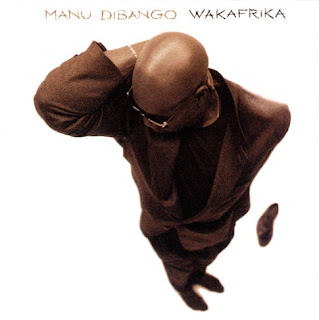 |
Last year, he played for hundreds of fans at Mano-Mundo Festival in Belgium, and this year he was in Belgium again to play at Gent. He speaks about his passion for music.
Joel: As
an African musician you have made such an enormous contribution to African
music internationally. How do you feel about this achievement?
Manu: I’m
glad I’m still in motion. I don’t think of my past achievements. The most
important thing is what I’m going to do tomorrow. I’m happy I did what I did.
Thanks be to God.
Joel: In
1972, your hit “Soul Makossa” stormed the world. Since then you are still on
the music scene. What keeps you moving all these years?
Manu:
Passion “La Passion” What I would want African youths to have is passion.
Because if you have passion, you can easily accept suffering and when there is
no passion, you have to try to cultivate it. If you can do that then you can really
bring out the best of yourself.
Joel: In
1985, you raised funds for famine-stricken Ethiopia through your “Tam-tams for Ethiopia
project” with Mory Kante and others. What do you feel about the present
situation in Ethiopia?
Manu: Well,
talking about Ethiopia is like talking about the whole continent. A month ago
we played against AIDS and famine. We also played in Dakar. It is not only the
music which is playing an important role in this issue of problems affecting
Africa but the activities of doctors, sportsmen, and journalists are also
helping in various ways.
Joel:
According to an international music magazine I read recently, you and the late
Fela Anikulapo Kuti are among the world’s best saxophonists. How do you feel
about this?
Manu: It’s
nice to hear that. You know that one doesn’t play music just for the hours to
pass. But you play music because you are in love with music and luckily if it
happens that people like what I’m proposing, then I’m happy.
Although music is business, yet you don’t start thinking about money from the initial stages when you are in music. First, propose to the people what they want and if they like it, then the money comes later.
Although music is business, yet you don’t start thinking about money from the initial stages when you are in music. First, propose to the people what they want and if they like it, then the money comes later.
Joel:
Last year, I watched you playing at the Mano-Mundo festival when the
frenzied crowd called for more songs. What was your experience at that moment?
Manu: Well
you can see that I’m still in motion. It happens that you share the music with
the audience. That is the best happiness an artist can have. I’m not alone on
stage but with a group of musicians.
So the more the music is successful, the more the audience feels happy about the music. It’s the responsibility of an artist to make his fans happy. That is a proposition. I’m always talking about a proposition.
So the more the music is successful, the more the audience feels happy about the music. It’s the responsibility of an artist to make his fans happy. That is a proposition. I’m always talking about a proposition.
Joel:
This question comes from one of your fans who live in the United States of
America. He said I must ask you the reason you do always play in Africa and
Europe but not in the USA.
Manu: If they want me there, I will be there. I go to every country that wants Manu. I have management and those who want me to play in contact with my management. I have played in Canada and some parts of South America. I live in America for two years in the ’70s. The most important thing is they love my music.
Discover
the interviews of some of your favourite musicians in ‘The Passion Of Reggae
And African Music. https://goo.gl/INF751

